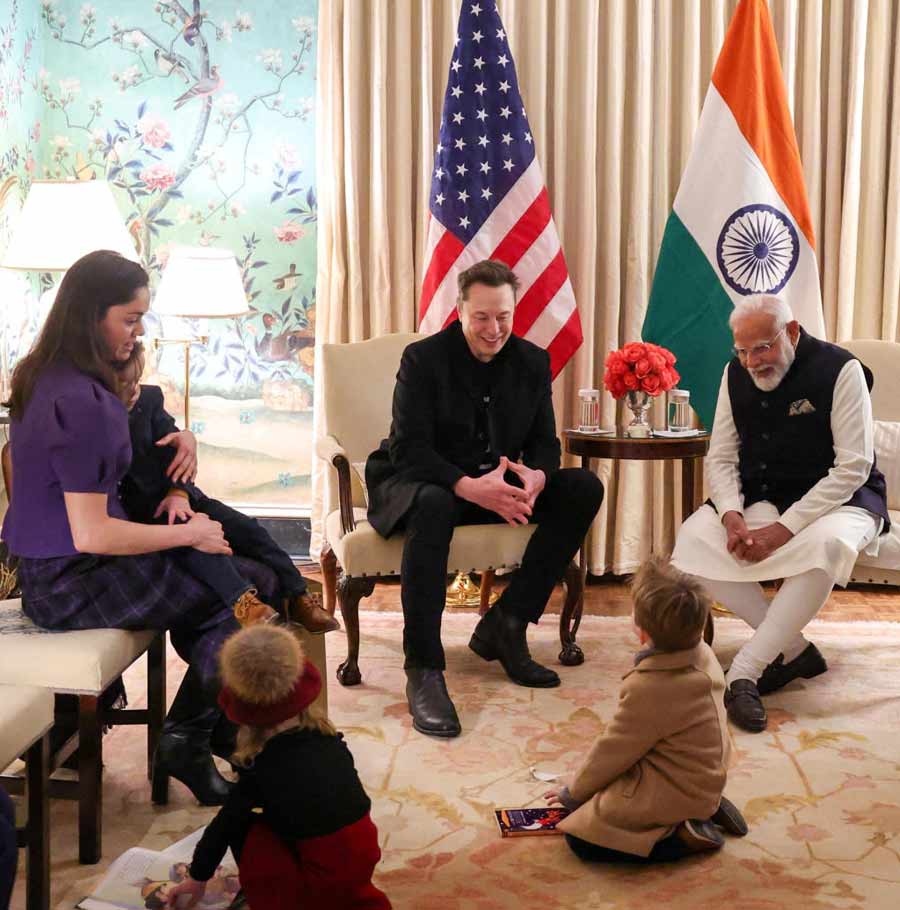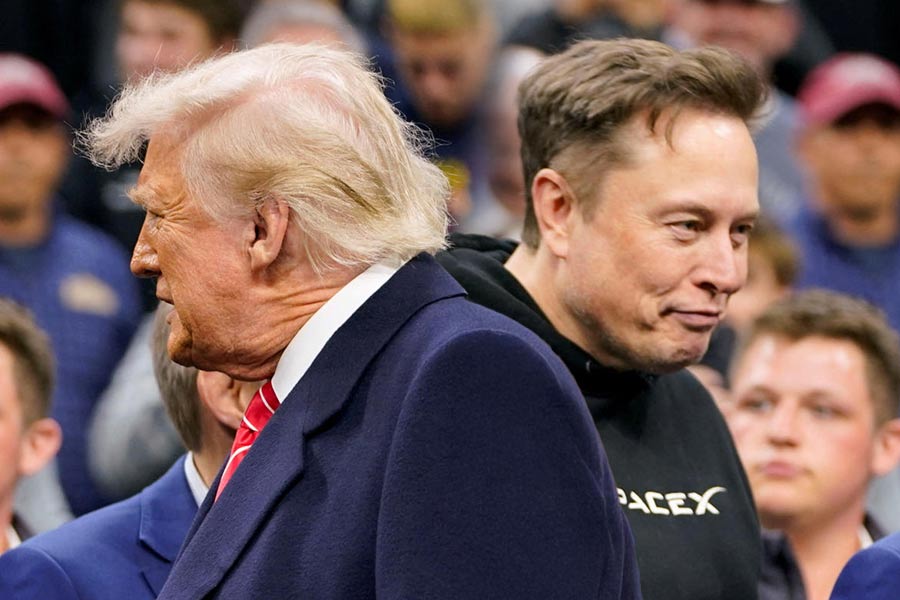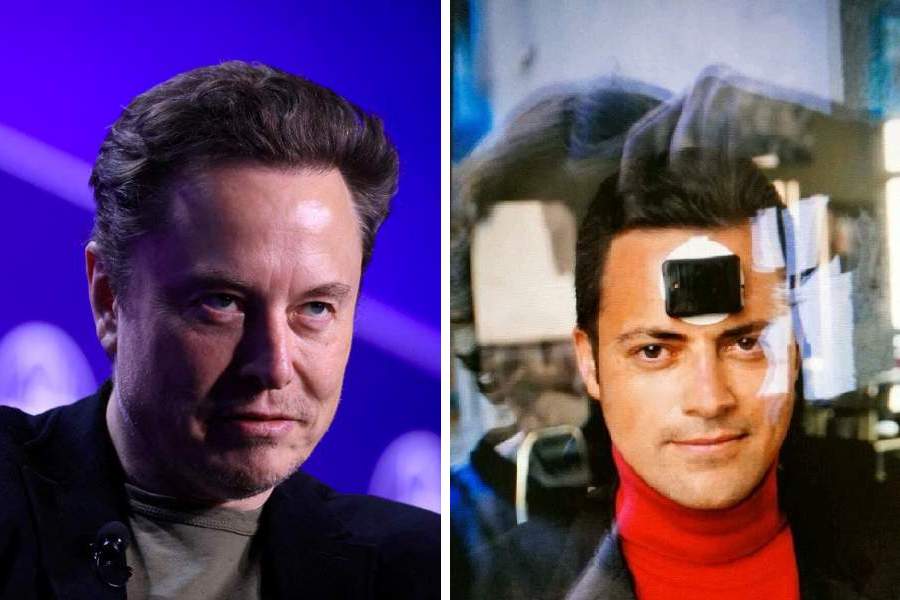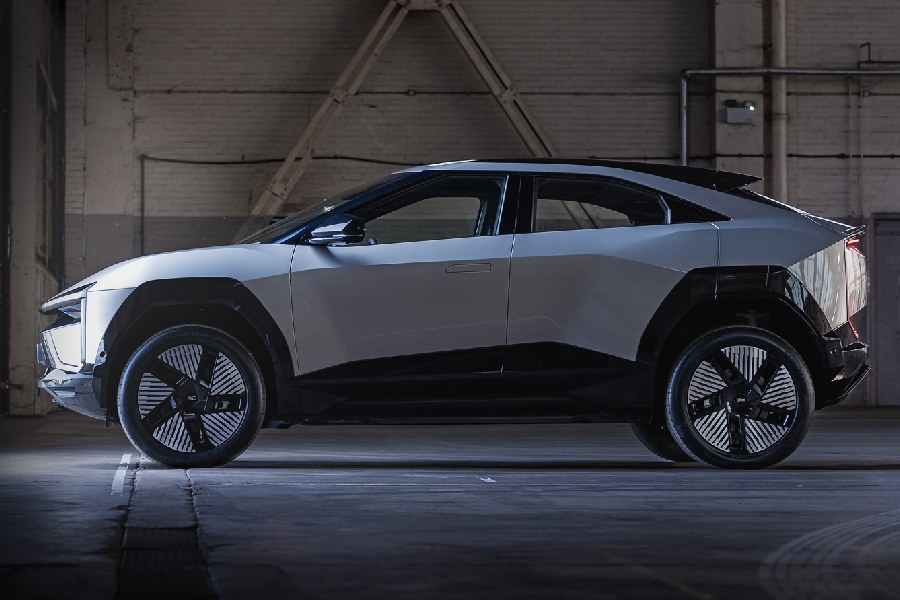It’s been 100 days since Elon Musk came to power and told a cheering crowd of MAGA supporters: “I can’t wait. This is going to be fantastic." In the early days of Donald Trump’s return to office, Musk seemed to be everywhere at once – sitting next to the President in the Oval Office, dominating cabinet meetings, and roaming the West Wing wearing a black T-shirt labelled “Tech Support.”
But it couldn't last could it?
Musk strode into Washington like a conquering hero, ready to soar to new heights like one of his Falcon-9 rockets. But even before the 100 days could be struck off on the calendar, Musk was already on a downward trajectory — like one of his many failed rocket launches — being seen as a political liability.
For a while, though, Musk operated with few limits, spearheading the Department of Government Efficiency, DOGE in Trumpian branding, and he set about dismantling the federal bureaucracy piece by piece.
But as Musk’s influence grew ever more pervasive, so too did the controversies. India, for one, has watched Musk’s spectacular rise and sudden descent with distinctly mixed feelings. Prime Minister Narendra Modi went out of his way in Washington to cultivate the automobile-and-space billionaire – memorably meeting Musk, along with his toddler son and nanny.

Elon Musk meets Indian Prime Minister Narendra Modi, in Washington, D.C., U.S., February 13, 2025. Reuters picture.
India looked eager to clear space for Musk’s Teslas on its roads if that would buy it the right type of clout in the US capital.
The calculation wasn’t hard to figure out. As the head of a sprawling tech empire, Musk would almost certainly need to hire young engineers. And who better to fill those roles than graduates pouring out of India’s technical institutes? Also, why not back the man who might help push for looser visa rules, ones that would allow Indian talent to realise their American Dream and journey to that gleaming modern-day Promised Land?
India is desperately searching for friends in Trump’s Wild West-style Washington. We've made minor moves like reducing duties on Harley Davidson's powerful motorbikes – even though the company probably doesn't have more than a handful of buyers here. India desperately needs trade and can't afford to antagonise the powers-that-be in Washington. And Modi himself made it a point to be nice to Musk’s children -- and also Vice President J. D. Vance’s kids when they tagged along to India.
Musk — despite his visibly erratic ways — was a prize well worth playing for. Here was a man wealthy beyond the dreams of avarice, who almost appeared very often to be playing the role of alternate President – his son even leaving a blob of snot on the Oval Office’s iconic Resolute Desk.
India wasn’t alone in placing bets on Musk and hoping he might make Washington’s gods shine upon their economic dreams. Bangladesh has just handed a 10-year licence to Musk’s Starlink to operate its satellite Internet service. Sri Lanka moved even faster, awarding Starlink a licence to function as a telecom services provider. Sri Lanka’s left-leaning government explained its move, saying it wanted to build a $15-billion IT sector on the island by 2030 – with Starlink expected to play a role.
Still, backing Musk has always meant betting on a spectacularly temperamental and unpredictable horse. Musk startled even his most ardent fans when he appeared on stage waving a chainsaw — gifted by Argentina’s mould-breaking right-wing President, Javier Milei. The symbolism of the chainsaw was clear: Musk would savagely cut through government bureaucracy. But the image of Musk waving the chainsaw about on stage was wilder than even Milei may have anticipated.
Even if it’s shortlived, Musk’s foray into government has brought him great riches – and not just in terms of cash and contracts for his companies. Musk is now in possession of a great and almost unparalleled storehouse of knowledge about the US federal government.
His DOGE troopers stormed the Treasury Department and came away with information on every outgoing payment it makes. This, as The New York Times pointed out, gives him a “powerful tool to monitor and potentially limit government spending”. This information, it could be argued, is enough to make him Top DOGE in Washington.
Keep in mind that Musk swept through the Treasury Department barely 11 days after Trump had returned to power. By February 10, news channel ABC reckoned Musk’s troopers had raided 15 federal agencies. And at the end of February, Trump and Musk were giving the TV channels and news websites a joint interview where Musk did most of the talking – with his son interrupting every now and then.
Trump sat through it silently, though he isn’t known to be a man who likes the TV cameras turned away from him. ABC summed up the Musk war on government, saying: “DOGE employees, many of whom have no government experience, have been going through data systems, shutting down DEI (Diversity, Equity, and Inclusion) programs and, in some cases, whole agencies.”
That isn’t all. There are suspicions that Musk has been playing with government policies in ways that assist his own companies. He has made changes, for instance, in the Federal Aviation Administration (FAA), reportedly because it had put impediments in the way of his space launches.
Government-watchers in Washington gazed upon all the lively power play with almost bated breath. On occasions, the rifts in the Trump administration have turned into open warfare. Tariffs have become a flashpoint. Musk, who’s called for free trade between Europe and North America, described Trump’s top trade advisor Peter Navarro as “truly a moron” and “dumber than a sack of bricks.” More recently, Musk and Treasury Secretary Scott Bessent got into a West Wing shouting match within earshot of Italian Prime Minister Giorgia Meloni, who was in the middle of a meeting with Trump. Axios quoted a government official saying: “It wasn’t a fight about right or wrong. It was about control.”
The tension isn’t limited to the corridors of power. Musk’s political entanglements are rattling his core market. In the US nearly 70 per cent of Teslas are sold in Democratic strongholds like California — where bumper stickers now read: “Don’t blame me. I bought this car before Trump’s election.” Tesla sales have slid, profits are down, and Musk is $100 billion poorer than he was just a few months ago.
There’s also a legal cloud. Musk could fall foul of government regulations if he stays on much longer in the administration as a “special government employee.”
And Musk’s business empire is in deep trouble in more ways than one. At one level, people who don't like his politics have stopped buying. Even more seriously Chinese EV companies led by BYD are stepping on the accelerator and overtaking Tesla.
Put all that aside. More than anything else, it’s clear that Musk may have overplayed his hand and outstayed his welcome in government. He tried to outshine Trump – who didn’t get where he is today by letting that happen.












